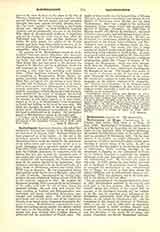

Bartholomew, Apostle of Armenia, also called Bartholomaeus Parvus (the Little), b. at Bologna, year not known; d. August 15, 1333. Nothing certain has been preserved as to his family. At the end of the thirteenth century, while still young, he entered the Dominican Order, made his studies in the monastery of his native town, and soon became noted as a capable theologian and a preacher zealous for souls. Pope John XXII cherished a great desire not only to keep the Catholic Armenians in connection with the Roman See, but also to lead the schismatic part of this people into unity with the Church; for this reason he supported and encouraged the Dominican missions in the regions inhabited by Armenians. Bartholomew was selected to be the head and leader of a little band of Dominican missionaries whom John XXII sent to Armenia. He was consecrated bishop and received as his see the city of Maragha, lying east of Lake Urumiah. Accompanied by several companions the new missionary bishop arrived (1318-20) in the territory assigned to him. He studied the Armenian language, built a monastery for his brethren of the order, and with the aid of these began his apostolic labors. He met with such success that large numbers of heathen and Mohammedans were converted and many schismatic Armenians were brought into Catholic unity. The zealous bishop gave great care to this latter part of his missionary labors, as he found many Armenians favorably disposed to union. Bartholomew’s reputation for saintliness and learning spread rapidly into distant regions and came to the knowledge of a group of Armenian monks who were striving after a higher degree of perfection and the attainment of Church unity. The leader of these monks was the learned John of Kherna (Kherni), the head of a monastery near Kherna in the district of Erentschag (now Alenja), not far from Nachidjewan. John was a pupil of the celebrated theologian Isaias, whose school had produced 370 doctors of theology (l’artabed). In 1328 John of Kherna sought out Bishop Bartholomew, remained with him a year and a half and became a warm advocate of union with the Roman Church. He sent an invitation to a conference, drawn up by the zealous missionary, to his former fellow-students, and Bartholomew went with him to Kherna, where the conference was held. The result was that a large number of learned monks joined John of Kherna in submitting to the authority of the Holy See. In order to promote union and raise religious life John founded in 1330, with the consent of Bartholomew, a religious congregation called the “Uniats (Unitores) of St. Gregory the Illuminator”, which was later incorporated with the Dominicans. About this time Bartholomew seems to have substituted Nachidjewan for Maragha as his see. This brought him nearer to the center of Armenia, so that he was able to work more efficiently for the development of the union. He translated a number of works into the Armenian language, as: the Psalter, treatises of St. Augustine, the “Summa contra Gentiles” of St. Thomas, and a part of the Summa theologica; he also wrote several original works, especially a work on casuistry and a treatise on the sacraments.
J. P. KIRSCH

